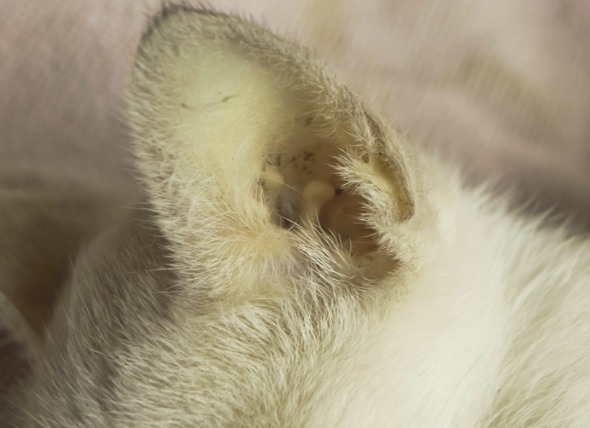

Inflammation of the brain, also known as encephalitis, is a life-threatening condition that affects cats. It is occasionally accompanied by the inflammation of spinal cord (myelitis), and/or the inflammation of the meninges (meningitis), membranes which cover the brain and spinal cord.
Although symptoms may vary depending on the portion of brain affected, they typically appear suddenly and are rapidly progressive. Such symptoms include:
You will need to give your veterinarian a thorough history of your cat’s health, including the onset and nature of the symptoms, and possible incidents that might have precipitated the unusual behaviors or complications. He or she will then perform a complete physical examination as well as a biochemistry profile, urinalysis, and complete blood count -- the results of which will depend on the underlying cause of the encephalitis.
If your cat has an infection, the complete blood count may show an increased number of white blood cells. Viral infections, meanwhile, may decrease the number of lymphocytes, a type of white cells (also known as lymphopenia). And abnormal reduction in platelets (small cells used in blood clotting) is a good indicator of thrombocytopenia.
To confirm lung involvement and related complications, your veterinarian may employ chest X-rays, while MRIs and CT-scans are used to evaluate the brain involvement in detail. Your veterinarian may also collect a sample of cerebrospinal fluid (CSF), which is then sent to a laboratory for cultures. This is necessary for definitive diagnosis and to determine the severity of the problem. If culture assays are unsuccessful, a brain tissue sample may be necessary to confirm the diagnosis, but this is an expensive procedure.
Your veterinarian will focus on reducing the severity of the symptoms, such as brain edema and seizures, and halt the progression of the disease. Severe forms of encephalitis require immediate hospitalization and intensive care. For instance, those suspected of having bacterial infections will be given broad spectrum antibiotics, which can reach the brain and spinal cord.
With proper treatment and care, symptoms gradually improve within two to eight weeks; however, the overall prognosis depends on the underlying cause of the condition. For example, in some cats, symptoms may reappear once treatment is discontinued. In such instances, a second round of treatment (or long-term treatment) may be required to save the cat's life.
Your veterinarian will schedule regular follow-up exams to evaluate the effectiveness of the treatment and the cat's state of health. He or she may even recommend a new diet for the cat, especially if it is frequently vomiting or severely depressed.
Image: Stokkete via Shutterstock
 Low Body Temperature in Cats
Hypothermia in Cats
Hypothermia is a medical cond
Low Body Temperature in Cats
Hypothermia in Cats
Hypothermia is a medical cond
 Yellow Skin (Jaundice) in Cats
Icterus in Cats
Icterus (or jaundice) is a yellow
Yellow Skin (Jaundice) in Cats
Icterus in Cats
Icterus (or jaundice) is a yellow
 High Cholesterol in Cats
Hyperlipidemia in Cats
Hyperlipidemia is characte
High Cholesterol in Cats
Hyperlipidemia in Cats
Hyperlipidemia is characte
 Why Do Cats Urine Mark?
According to charities, one
Why Do Cats Urine Mark?
According to charities, one
 Wart Virus in Cats
Papillomatosis in Cats
The term papillomatosis is
Wart Virus in Cats
Papillomatosis in Cats
The term papillomatosis is
Copyright © 2005-2016 Pet Information All Rights Reserved
Contact us: www162date@outlook.com